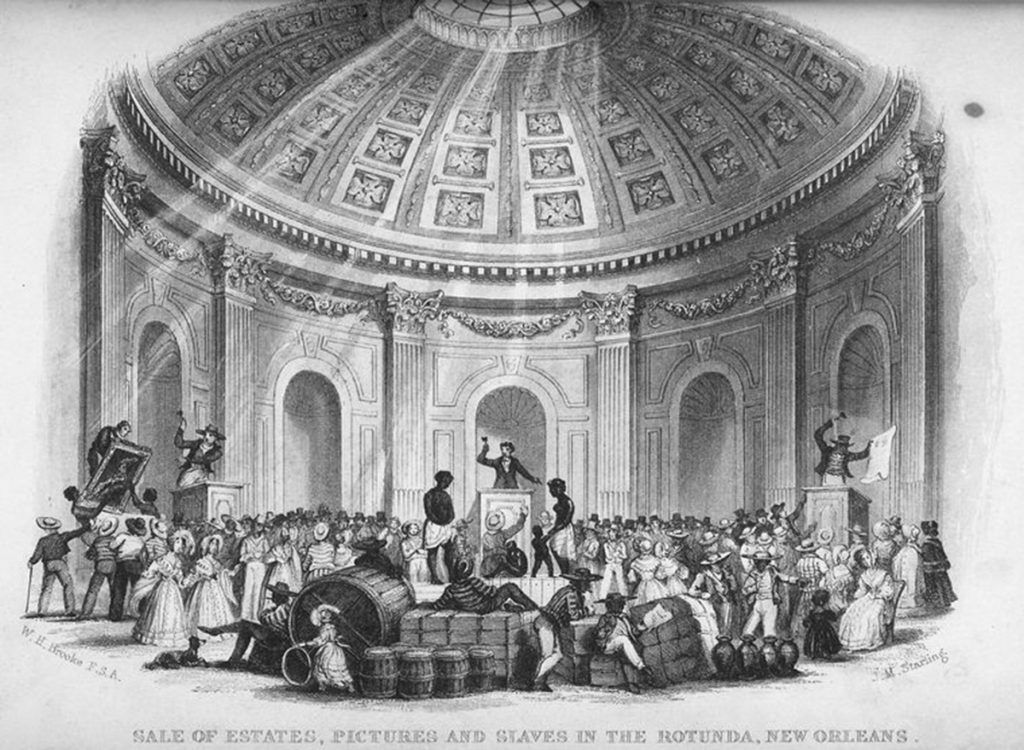On March 7, 1838, an enslaved young woman named Sarah was sold at auction for $400. Sarah had been owned by Dr. Augustus Davezac, son of the U.S. ambassador to the Netherlands and a well off physician who lived in New Orleans.
The Davezac family had lived in Accomac, Virginia until shortly after the War of 1812, when Augustus Davezac, Sr. moved the family to New Orleans along with the enslaved men and women they owned. Sarah was likely born to one of the enslaved women in the Davezac household shortly after they moved to New Orleans.
By 1838, the Davezacs were struggling financially because the patriarch of the family had not been paid for his work as a diplomat in some time. Although a friend of Andrew Jackson, he had alienated his supervisors in the State Department through his miscommunication. His son, now married to Sarah Carter, sold some of the family’s slaves to make up the shortfall.
Sarah was auctioned off at the St. Louis Exchange Hotel, the largest slave market in New Orleans. The auctioneer, M. Barnett, had a permanent auction block in the market.

Sarah’s experience on the auction block was humiliating and degrading. Jordan Smith, a formerly enslaved man interviewed in the 1930s, remembered a sale at the St. Louis Exchange in New Orleans. He told a WPA interviewer, “”They was a trader yard in Virginia and one in New Orleans and sometimes a thousand slaves was waitin’ to be sold. When the traders knowed men was comin’ to buy, they made the slaves all clean up and greased they mouths with meat skins to look like they’s feedin’ them plenty meat. They lined the women up on one side and the men on the other. A buyer would walk up and down ‘tween the two rows and grab a woman and try to throw her down and feel of her to see how she’s put up.'”1 Sarah, at age 18, was sold likely to either pick cotton and birth enslaved babies, or into the sex trade. She was purchased by Samuel Morris Jacobs of Louisiana. Unfortunately we have been unable to find out what happened to her after she was sold.

Bibliography
Federal Writers Project of the Works Progress Administration, Slave Narratives: A Folk History of the United States from Interviews with Former Slaves. vol. 16 (Texas pt. 4). Washington, DC: Library of Congress, 1941.
“Sale of Slave”, March 7, 1838, Act 10. Notarial Records of Sarah, New Orleans Notarial Records Archive, New Orleans, Louisianna. Accessed via https://www.familysearch.org/ark:/61903/3:1:3QHV-N3ZY-QH7T?i=53&cat=147547
Research conducted by Christopher Johnson-Greer, essay written by Stephanie Richmond